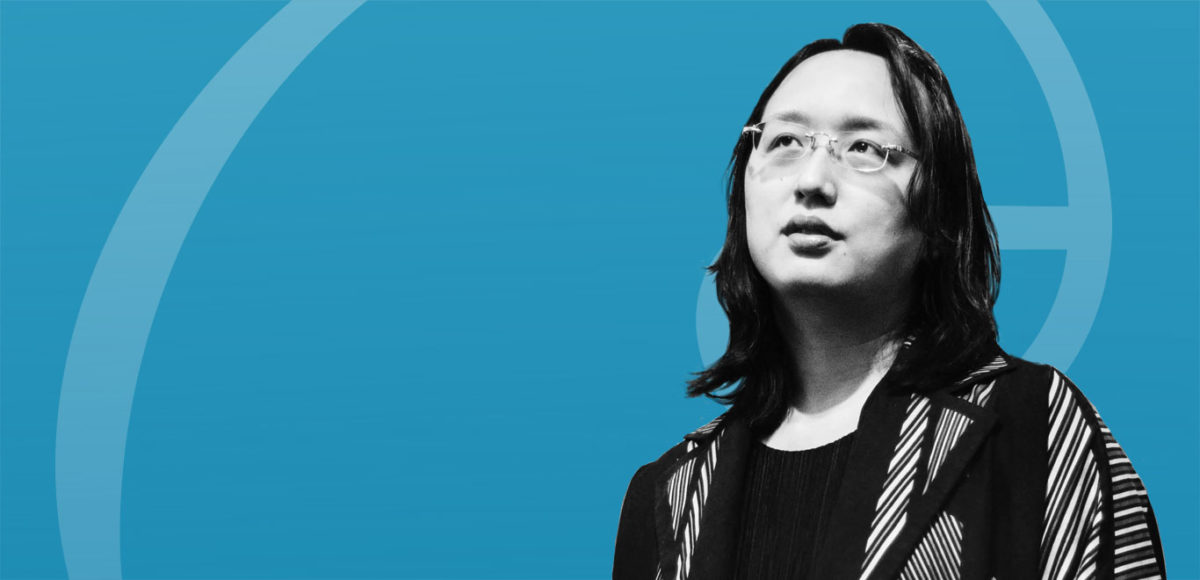Interview with Audrey Tang, civic hacker and Taiwanese digital minister
The complete interview will be published later this year in Alexander Görlach’s next publication on AI and society, which he is conducting together with the Vodafone Institute on Society and Communications. Click here to view the lastest publication on that series.
Alexander Görlach: What precisely has changed in the conduct of democracy since the advent of digital technologies?
Audrey Tang: The ‘digital’ meant two different things.
The first is that it makes it possible for people to listen to one another much more straightforward. The pre-Internet technologies, like radio or TV, usually make it very easy for one person to speak to millions of people. Arguably, that’s how World War II at least started, and to some extent, World War I. It made communication hierarchical.
With the Internet, everybody has more or less symmetrical connections, that is to say, they have equal bandwidth to receive as well as to send. That enables ‘listening-at-scale’, as I prefer to call it: one person can listen to millions of people, but more importantly, millions of people can listen to one another. It is a fundamental change in configuration that for the first time, it makes horizontal organization easier than a hierarchical organization.
Alexander Görlach: That is also a new situation for parliamentary democracy.
Audrey Tang: Right. Essentially, in the pre-Internet era, representative democracy was a compromise with the reality that it’s impossible to listen to more than 20 people at a time. Now, it is possible to listen to 200 or even 400 people. We do that every day on Twitter, on social media, and so it is for the first time easier to coordinate with what we call weak links across the Internet as compared to people just having to step into a physical town hall. This configurational change is the first thing.
Representativeness gives way, to a degree, to representation. We made a transcript of this interview, which our citizens can very easily find with search engines, and they can relive through the context of our exchange. That is the representation. The document serves as the presentation, again, of our ideas, but the document itself is not a representative. The intermediary shifts from a human being into a mechanism. That’s the reconfiguration.
That enables ‘listening-at-scale’, as I prefer to call it: one person can listen to millions of people, but more importantly, millions of people can listen to one another
Alexander Görlach: To me, the crisis of democracy results from a disentanglement of civic rights and social rights. Would you agree?
Audrey Tang: Very much so. As you have observed, in many cases, it feels like you have to join one tribe or the other, to organize and find a representative, and force the public service – which is always anonymous – to solve all the tension, to tug of war a little bit on your faith. That’s traditional social activism or mobilization. This mechanism basically creates a reflection of the new fact that people don’t organize like this anymore, with #MeToo, or a #StrikeonFridays. It doesn’t look like this at all. It’s basically just a meme if you will, and then people will identify with the meme, actually take control of the meme, and apply it however they want.
Alexander Görlach: Given that technology is always at the forefront of advancement, that means lawmaking and regulation naturally lag.
Audrey Tang: I think the recent Facebook example is a good one. The fine on Facebook doesn’t so much hurt its bottom-line but rather sets what the norm is, and it’s crucial in Internet governance. It is primarily a cyber norm. People will write code that conforms with incentives and policies, and finally, law. Law, as I said, always lags behind, but for a perfect reason. If you start with the law, that means that lawmakers need to know more about innovations than innovators do. I wouldn’t claim that, and I wouldn’t say any sane lawmaker would claim that. It’s like having a law that dictates the value of π, and we all know how that went.
If you start with the law, that means that lawmakers need to know more about innovations than innovators do.

 | Technology, AI and ethics.
| Technology, AI and ethics.

